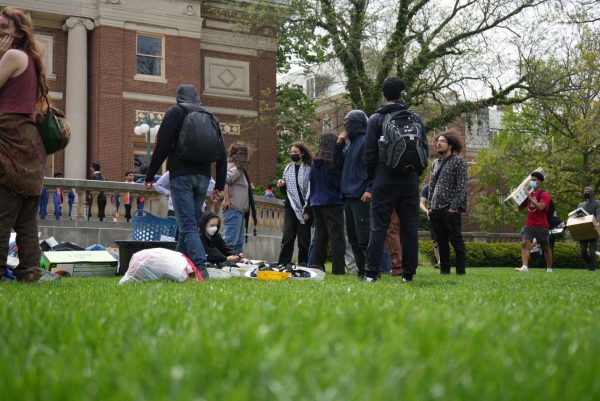Removal of donation caps unfair to the majority
April 10, 2014
Last week, in its 5-4 ruling in McCutcheon v. Federal Election Commission, the Supreme Court held that aggregate caps on individual campaign donations violate the First Amendment and are therefore unconstitutional.
Prior to the ruling, an individual donor could spend up to a set limit during a given two-year election cycle across candidates, national party committees, state party committees and political action committees (with individual restrictions for each subset). The ruling did not remove limits on per candidate or per committee giving, although Justice Thomas’ concurrence strongly hinted their days might be numbered, as well.
Still, now that the aggregate cap has been removed, individuals are no longer limited to giving only to a specific number of candidates or political entities, and could conceivably exert influence over a wide swath of political races, which is great news — for the few that can actually afford to do so.
And therein lies the potential for problems.
In Buckley v. Valeo, the Court first gave credence to the notion that money equates to political speech, which is protected under the First Amendment. In the McCutcheon majority’s view, aggregate limits on how many candidates or committees a person can support stifle one’s ability to make his voice fully heard on policy matters they care about. However, aggregate limits also serve as a means of leveling the playing field for all participants in the political process.
Get The Daily Illini in your inbox!
Politicians make sport of raising money, they seek out those that can bankroll their campaigns; and with good reason, the price of winning — especially at the federal level — continues to soar. Money is a powerful deterrent to potential challengers, and it provides candidates with a means to saturate relevant media markets with their name and brand; money, in many respects, often does buy votes.
When a limit exists on how many candidates any one person can give to, it gives incentives to politicians to reach to a broad base of people, which in turn, causes them the need to solicit and account for a wider range of interests.
In the wake of the McCutcheon ruling, however, there comes a greater incentive for politicians to flock to those political donors with large stores of capital. Consequently, politicians could find it advantageous to adopt the narrowed views of select big spenders with the means to contribute in order to curry their favor instead of dipping into a more comprehensive pot of people with arguably less dough.
The ruling may be premised in ensuring free speech for all, but its effects will certainly only be felt by a very select few. In the 2012 election cycle, less than half a percent of Americans gave political contributions of $200 or more, yet those donations accounted for over 60 percent of the total money raised.
Consider college graduates and the large chunk of Americans who are in debt. Few, if any of us, will have the means to donate any substantial amount of money in the near future to political campaigns. And what additional value does this “free speech” ruling give to individuals of low-socioeconomic statuses’ voices? None.
For most in this country, the ruling does nothing more than stoke an artificial sense of fairness, while exuding anything but.






